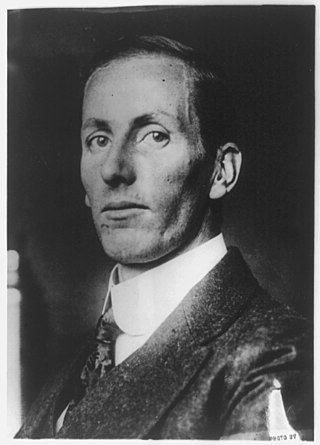Related Research Articles

Pacifism is the opposition or resistance to war, militarism or violence. Pacifists generally reject theories of Just War. The word pacifism was coined by the French peace campaigner Émile Arnaud and adopted by other peace activists at the tenth Universal Peace Congress in Glasgow in 1901. A related term is ahimsa, which is a core philosophy in Indian Religions such as Hinduism, Buddhism, and Jainism. While modern connotations are recent, having been explicated since the 19th century, ancient references abound.

A conscientious objector is an "individual who has claimed the right to refuse to perform military service" on the grounds of freedom of thought, conscience, or religion. The term has also been extended to objecting to working for the military–industrial complex due to a crisis of conscience. In some countries, conscientious objectors are assigned to an alternative civilian service as a substitute for conscription or military service.
The Fellowship of Reconciliation is the name used by a number of religious nonviolent organizations, particularly in English-speaking countries. They are linked by affiliation to the International Fellowship of Reconciliation (IFOR).

Peace churches are Christian churches, groups or communities advocating Christian pacifism or Biblical nonresistance. The term historic peace churches refers specifically only to three church groups among pacifist churches:

Max Kampelman was an American diplomat.
Conscientious objection to military taxation (COMT) is a legal theory that attempts to extend into the realm of taxation the concessions to conscientious objectors that many governments allow in the case of conscription, thereby allowing conscientious objectors to insist that their tax payments not be spent for military purposes.

War Resisters' International (WRI), headquartered in London, is an international anti-war organisation with members and affiliates in over 30 countries.

Christian pacifism is the theological and ethical position according to which pacifism and non-violence have both a scriptural and rational basis for Christians, and affirms that any form of violence is incompatible with the Christian faith. Christian pacifists state that Jesus himself was a pacifist who taught and practiced pacifism and that his followers must do likewise. Notable Christian pacifists include Martin Luther King Jr., Leo Tolstoy, Adin Ballou, and Ammon Hennacy.
Mark Plowman, generally known as Max Plowman, was a British writer and pacifist.

The Kautz Family YMCA Archives, located at the University of Minnesota Libraries in Minneapolis, United States, archives the historical records of the U.S. YMCA national association, YMCA of the USA, the records of the Minneapolis and Greater New York YMCAs, and those of the Y's Men International, a service club in partnership with the YMCA.

Benjamin Joseph Salmon (1888–1932) was an American Christian pacifist, Roman Catholic, conscientious objector and outspoken critic of just war theory, who believed no war could be morally justified.
Julien Davies Cornell was an American lawyer. Cornell, a graduate of Swarthmore College and the Yale Law School and a descendant of Ezra Cornell, was a pacifist who defended many conscientious objectors who refused to serve in World War II and wrote two books on the subject of conscientious objection, The Conscientious Objector and the Law (1943) and Conscience and the State (1944). Cornell's greatest notoriety came from his defense of Ezra Pound following Pound's indictment for treason for his wartime broadcasts denouncing the Allied war effort and its political leaders and praising Benito Mussolini and Adolf Hitler, an experience Cornell chronicled in The Trial of Ezra Pound (1966).
Peter Brock (1920–2006) was an English-born Canadian historian who specialized in the history of pacifism and Eastern Europe.
Jonathan Dymond (1796–1828) was an English Quaker and an ethical philosopher who is known for his monograph An Enquiry into the Accordancy of War with the Principles of Christianity.
Pacifism has manifested in the United States in a variety of forms, and in myriad contexts. In general, it exists in contrast to an acceptance of the necessity of war for national defense.
Frances May Witherspoon was an American writer and activist, co-founder with Tracy Dickinson Mygatt of the War Resisters League, and executive secretary of the New York Bureau of Legal Advice, a forerunner of the American Civil Liberties Union.
A Conscientious Objector is an "individual who has refused to take part in the Great War". There were different meanings for this, for example, religious meanings, freedom of thought, conscience, and disability. In many countries Conscientious Objectors are forced to do other services as a substitute for military service. Conscientious Objectors were often seen as cowards. Many people from across the United Kingdom were considered to be Conscientious Objectors during the First World War, and the movement was as pronounced in Wales as in any other part of the county.
Conscientious objection in the United States is based on the Military Selective Service Act, which delegates its implementation to the Selective Service System. Conscientious objection is also recognized by the Department of Defense.
Henry Leroy Finch, Jr. was an American scholar and professor of philosophy and a pacifist organizer.

Selective conscientious objection is the practice of refusing some, but not all, military service. It is much more controversial than blanket conscientious objection based on consistent pacifism. Views on selective conscientious objection range from being morally impermissible, morally permissible, a right that may be exercised, or morally obligatory in the case of military personnel asked to fight an illegal war of aggression.
References
- ↑ "Archives & Special Collections · University of Minnesota Libraries". special.lib.umn.edu.
- ↑ "Mulford Quickert Sibley papers".
- ↑ "Archives & Special Collections · University of Minnesota Libraries". special.lib.umn.edu.